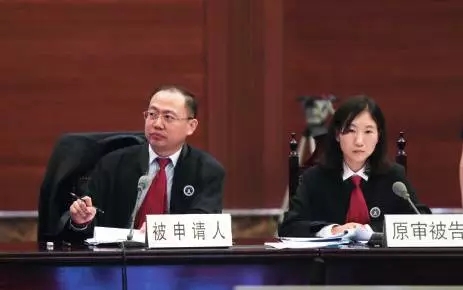Huang Hui Receives an Interview with China Trial
26.08.2016 |News
Below is a translation of part of the interview article published by China Trial.

Mr. Huang Hui (pictured left), acting for the Respondent Archangelos Investments, gave a very impressive debate performance during the open retrial. He is a partner lawyer of Huang & Huang Lawyer Firm and a “Leading Individual” in shipping as ranked by Chambers Asia-Pacific and Asian Legal Business. After the announcement of the retrial judgment, Mr. Huang Hui received an interview with China Trial, in which he said the open hearing shows the Chinese judges’ competence and self-confidence.
…
China Trial: What kind of impact do you think the result of the retrial would bring to the application of relevant provisions in the International Convention on Salvage, 1989 (the “Convention”) and the Maritime Code of the People’s Republic of China (the “Maritime Code”)
Huang Hui: First of all, employed salvage is a new concept as distinguished from pure salvage and conventional contractual salvage. Whether the Convention or the Maritime Code should apply when it comes to employed salvage has become a focus of academic research and debate in recent years. Our study finds that different maritime courts in China have addressed this issue differently, while scholars and law practitioners also have varying opinions. In this context, the Supreme People’s Court took the opportunity of this retrial to specify the scope of application of the Convention and the Maritime Code (i.e. applicable to pure salvage and contractual salvage only) and the applicable law of employed salvage (i.e. the Contract Law). This, without doubt, will become a guideline for litigants and courts at all levels in China to follow when handling analogous cases in the future and will help to ensure uniformity, consistency and the authority of decisions rendered by judicial tribunals across the country.
However, the problem of law connection should also be considered or in other words some follow-up work should be done after the Supreme People’s Court has decided that the employed salvage contract should fall within the scope of application of the Contract Law. For example, which procedural law should be applied to employed salvage, the Civil Procedure Law of the PRC or the Special Maritime Procedure Law of the PRC? If it is the Civil Procedure Law of the PRC, then the savlor will only be able to resort to the ordinary “property preservation” measure to secure its salvage claim, while other special measures as provided for in the Special Maritime Procedure Law of the PRC, including ship arrest, preservation of maritime claims and maritime injunction, and the right to demand satisfactory security from the owner of the property salved before delivery of the property as provided for in Chapter 9 of the Maritime Code would no longer be applicable. This apparently could have a significant impact on how the salvor may secure and realize its rights under the employed salvage contract.
Besides, if employed salvage contracts should be governed by the Contract Law rather than the Maritime Code, do maritime courts still have exclusive jurisdiction over analogous disputes arising from employed salvage? Are claims for salvage remuneration under employed salvage contracts still maritime claims that are entitled to maritime liens as provided for in Article 22 of the Maritime Code of the PRC? These problems need to be studied and clarified in due course.

